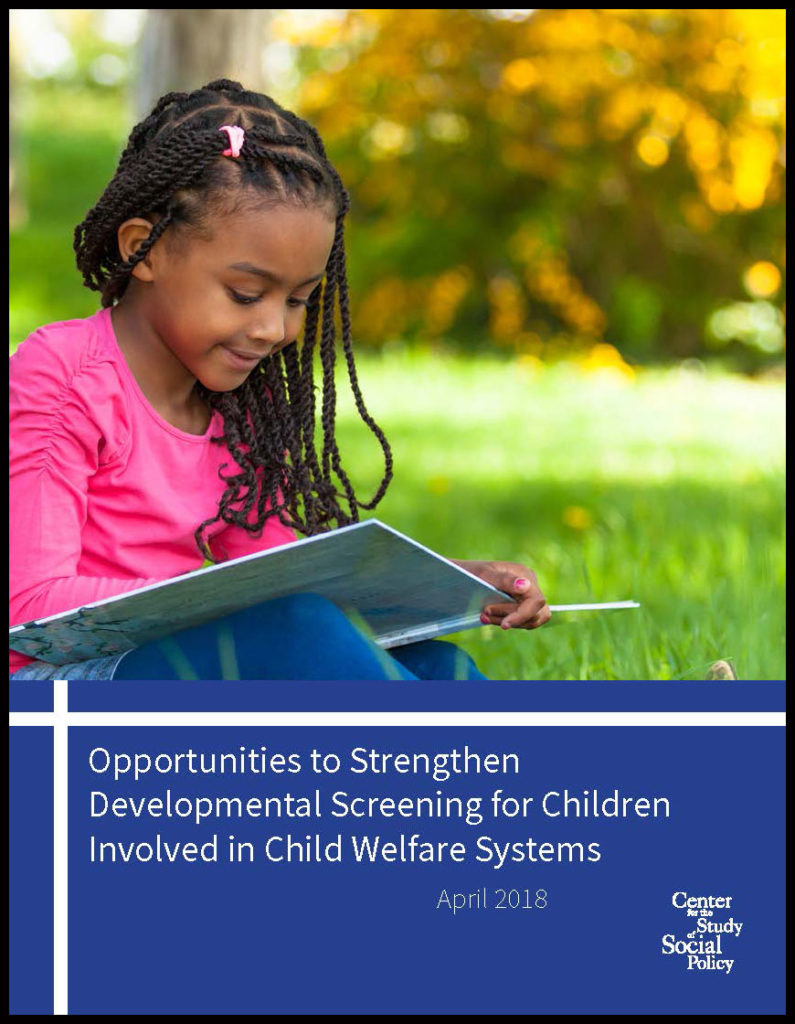Today marks the beginning of the Week of the Young Child™, an annual time to celebrate young children and their families and to acknowledge the need for investments in securing their health and wellbeing. At CSSP, we are laser-focused each day on doing as much as we can to ensure that all children are ready for school and get a strong start in life. We direct our energy and resources to advancing policy and practice, elevating meaningful parent engagement and leadership, supporting community efforts to ensure equitable opportunities for all children and more. This week it is our privilege to share fresh ideas and insights, policy perspectives and exciting new developments as we post a blog each day from a member of our Young Children and their Families (YCF) team. This will be the start of a regular YCF Team presence in this space. As we move forward, we invite your comments and suggestions, as well as your contributions to the blog. Thank you!
– Donna Cohen Ross, CSSP Vice President
***
Early childhood is a time of rapid brain development – a period that lays the foundation for healthy physical, cognitive, social and emotional growth. It sets the stage for success in school and throughout life. Screening young children for developmental delays, as well as vision and hearing impairments, is essential to identifying problems that could be addressed with treatment.
 Today, CSSP is releasing a policy brief that focuses attention on one particular group – children involved in the child welfare system – who often do not benefit from early developmental and health screening and intervention, although their needs far exceed those of children in general. The brief presents opportunities for improvement and highlights states that have implemented best practices.
Today, CSSP is releasing a policy brief that focuses attention on one particular group – children involved in the child welfare system – who often do not benefit from early developmental and health screening and intervention, although their needs far exceed those of children in general. The brief presents opportunities for improvement and highlights states that have implemented best practices.
Nearly half of all children entering the child welfare system are between birth and age five, and roughly 50 percent of all young children in foster care exhibit developmental delays – up to five times the rate seen in children in the general population. As is the case for all young children, developmental delays can impede school readiness and hamper the ability to form healthy bonds and relationships. For children in foster care, such effects can have other serious consequences, undermining placement stability and the potential for timely reunification or other permanency options.
Federal requirements have recognized the importance of developmental screening for young children, including those involved with the child welfare system. Even so, there are significant practice gaps in ensuring that appropriate screening occurs.
Our recommendations for improving the delivery of developmental screening and early intervention for children who become known to state and local child welfare systems include:
- Provide routine screening for all young children who come to the attention of child welfare agencies to ensure that all have equal opportunity to receive early care and intervention as needed.
- Strengthen training for the child welfare workforce and other key stakeholders on the importance of developmental screening and early intervention for young children at risk for or experiencing developmental delays. Bolster referral and linkage to services.
- Institute policies and accountability procedures within state and local child welfare agencies.
- Increase effective care coordination, collaborative practice and data-sharing among child welfare systems and other developmentally focused programs such as Early Intervention, Medicaid, Head Start, Early Head Start and child care.
Child welfare agencies that are responsible for ensuring the safety, permanency and well-being of children and youth have a critically important role to play in assuring that the young children they serve are appropriately screened for developmental delays and related concerns and are effectively linked to necessary early intervention services and supports. This work requires partnership with other programs that serve young children and calls for capacity building for both the child welfare workforce and other key stakeholders. State and local child welfare agencies can and should implement policies and accountability procedures to ensure that children in need of developmental screening, assessment and early intervention receive these services. Putting these recommendations into practice will help ensure that all children have an equal opportunity to get the early care they need for healthy growth and development, putting them on the path to a successful future.
—
Shadi Houshyar is a senior associate and project director at CSSP.